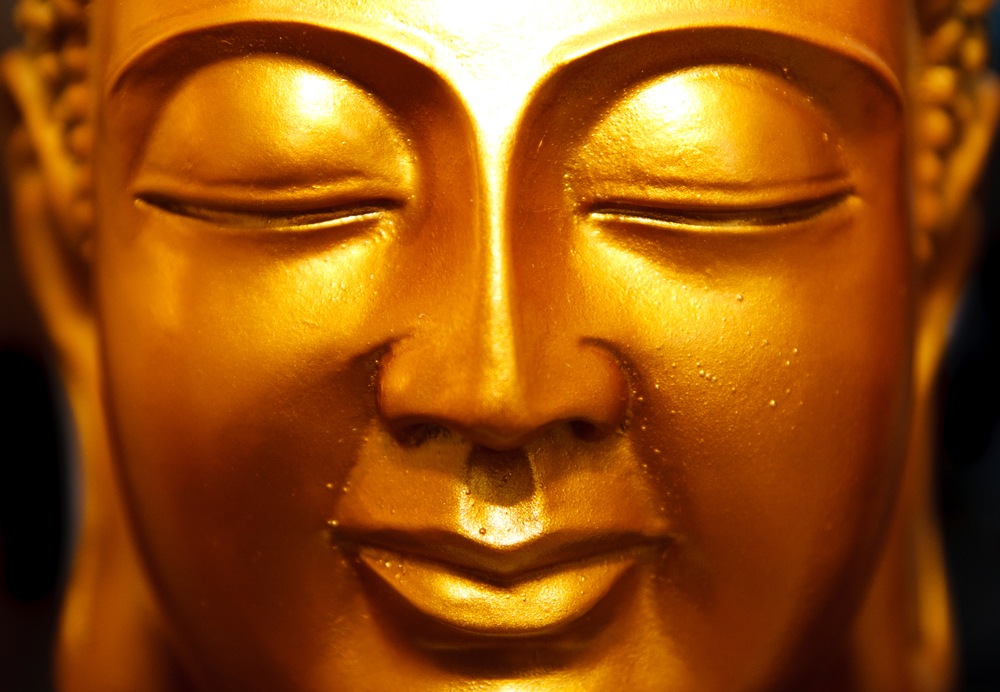“With wisdom let your mind full of love pervade one quarter of the world, and so to the second, third and fourth quarter. Fill the whole wide world, above, below, around, pervade with love filled thought, free from any ill-will, love abounding, sublime, beyond measure.” ~Diggha Nikaya
“Who, being loved, is poor?” ~Oscar Wilde
We have within us an extraordinary capacity for love, for joy, and unshakable freedom. Buddhist psychology describes this as optimal mental health. I have seen this optimal wellbeing in many of my teachers. Ajahn Jumnian describes his mind as completely steady, silent and free throughout both his waking and sleeping hours. He says, “I haven’t experienced a single moment of frustration or anger for over twenty years.” I’ve also observed that he sleeps only one or two hours a night. Ajahn Jumnian describes his inner life quite simply, “When I am alone, my mind rests in pure awareness. I am simply at peace. Then whenever I encounter people and experiences, the awareness automatically fills with loving-kindness or compassion. This is the natural expression of pure awareness.” Those around Ajahn Jumnian feel his free spirit and unshakable joy.
Another of my teachers, Dipama Barua, who I have introduced before, demonstrated these same qualities. Dipama was a householder and grandmother, and also one of the most accomplished meditators of the Theravada lineage. In her 30’s, Dipama lost her husband and two of her three children to illness. After a year of breakdown and paralyzing grief, Dipama dragged herself to a meditation temple. Desperate, she threw herself into the meditation, and through her ardent nature and innate ability, she emerged with a deep realization. Dipama was then trained and became a master of dozens of kinds of meditation. Afterward she became a teacher for many.
In the late 1970’s, I visited Calcutta to see Dipama. I had been meditating for a time in Bodh Gaya, India. Because of difficulty with my air ticket, I had only one day with Dipama. It was a terribly hot day, maybe 100 degrees. The air in Calcutta was smoggy and dirty. I paid my respects to her, and we spent some hours talking. Although I had been teaching successfully for five years, I was having a hard time. I had been suffering severe back pain, I was upset about a failed relationship, and before coming to India I had been working sixty hours a week for months. Given all this suffering and stress, I told her that I had begun to doubt my own capacities and ability to embody the teachings. Though she could see how shaky I was, she encouraged me to be steady in spite of it all. When it was time to go, Dipama gave me her usual Bengali bear hug. Then she said she had a special blessing for me. Because she was so tiny, when I got down on my knees for the blessing, I was equal to her in height.
Dipama took her hands and stroked gently across my head and my whole body. She blew her breath on me and recited loving-kindness chants at the same time. At first it seemed like a very long prayer, but as she continued blessing me, I started to feel better and better. After ten long minutes my whole body was tingling and open. I was smiling from ear to ear. “Go and teach a good retreat for all those people,” she said at last. “Go with mother’s blessings.” I felt as though a loving grandmother had sent me off with her good wishes, amplified with special yogic powers. I was in bliss.
I walked out into the sweltering Calcutta summer street and caught a taxi to Dum Dum Airport (the real name). It took two hours to get there, with the driver leaning on his horn the whole way, dodging between rickshaws and traffic and fumes and trash. At the airport I went through the tedious Indian customs, hours of standing around while officials looked through my stuff, grilled me and stamped my documents. Eventually I got on the airplane for the three hour flight to Bangkok. Bangkok was also hot and busy, like Los Angeles. The airport had long lines and more customs. Then I spent an hour and a half riding to my hotel through slow, crowded Bangkok traffic.
All the while I could not stop grinning. Through the customs lines, plane rides, taxi rides and traffic jams I sat there with this huge smile on my face. It would not wear off. I went to sleep smiling and woke up smiling. I smiled continuously for days, and felt uplifted for months following Dipama’s blessing.
Dipama and other Buddhist teachers demonstrate the psychological possibilities of the awakened heart. To understand these possibilities, Harvard psychologist Jack Engler made a study of Dipama and other advanced meditators. He found a degree of mental health and well-being that was the most remarkable ever seen by any scientists. He took their histories and gave them an extensive battery of tests, including the Rorschach and Thematic Apperception Test, which measure both personality and perception. Dipama’s test protocols confirmed her description of a luminous, loving mind, peaceful and completely untroubled with anger, fear, greed or conflict of any kind. She was totally open about her inner life. Engler reports, “The tests show a cognitive-emotional transformation and integration that reflected the deepest levels of inner liberation. Dipama spontaneously wove her test responses into an ongoing spiritual story, a narrative that revealed the whole teaching of the dharma and at the same time showed clear comprehension of the tests – a remarkable achievement none of the researchers had ever witnessed.”
Dipama shows what is possible when we return to our Buddha nature. But let us remember that the shining of the heart is not unique to meditation masters and advanced practitioners. My close colleague Sharon Salzberg tells this story from a daylong loving-kindness retreat at Jerry Brown’s “We the People” center in Oakland, California.
“Whenever I teach loving-kindness retreats in an urban setting,” Sharon explains, “I ask students to do their walking meditation out on the streets. I suggest they choose individuals they see and, with care and awareness, wish them well by silently repeating the traditional phrases of the loving kindness practice, ‘May you be happy, may you be peaceful.’ I tell them that even if they don’t feel loving, the power of their intention to offer love is not diminished. On this day our retreat took place a few blocks from downtown Oakland. Since we were directly across the street from the Amtrak station, several people chose to do their practice on the train platform.
When a train pulled in, one woman from the class noticed a man disembark and decided to make him the recipient of her loving-kindness meditation. Silently she began reciting the phrases for him. Almost immediately she began judging herself: I must not be doing it right because I feel so distant. I don’t have a great wash of warm feeling coming over me. Nonetheless, reaffirming her intention to look on all beings with kindness instead of estrangement, she continued, reciting, “May you be happy, may you be peaceful.” Taking another look at the man, who was dressed in a suit and tie and seemed nervous, she began judging him: He looks so rigid and uptight. Judging herself, she thought, Here I am trying to send loving-kindness to someone and instead I’m disparaging him. Still, she continued repeating the phrases, aligning her energy with her deep intention: to be a force of love in the world. At that moment the man walked over to her and said, “I’ve never done anything like this before in my life, but I’d like to ask you to pray for me. I am about to face a very difficult situation in my life. You somehow seem to have a really loving heart, and I’d just like to know that you’re praying for me.”
As we awaken to optimal mental health, our love flows without exceptions, without boundaries. We live freely and wholeheartedly. This is not a state we can hold, for it is boundless freedom. In describing it, the old list-makers had a joyous time. They enumerate four radiant abodes, the four degrees of noble hearts, five spiritual powers, five ranks, eight satoris, ten ox-herding pictures, ten Bhumi stages of a Bodhisattva, and thirty-seven factors of enlightenment.
This excerpt is taken from the book, “The Wise Heart”






